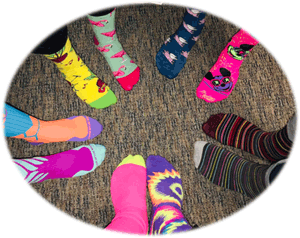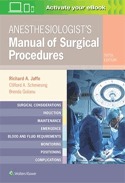Diversity Month is a time to recognize, celebrate, and appreciate the beauty in our differences
and similarities in order to gain a deeper understanding of each other.

Journal Changes for 2024
Li Ma, Associate Director, Content & Discovery

At the beginning of every new year, there are often changes in journals which may include additions, platform changes and cancellations. Though there are no cancellations this year, below are some changes for 2024.
Additions
The following title is being added to our subscriptions because it meets our criteria for inclusion based on cost, usage, journal quality, and relevance.
- Ophthalmology Glaucoma
New Platforms
The following journal titles will now be available on different platforms. Often this occurs when the professional society that publishes the journal begins working with or switches to a different commercial publisher.
| Journal | Former Platform | New Platform |
| British Journal of Radiology | Wiley | Oxford University Press |
| Journal of Bone and Mineral Research | Wiley | Oxford University Press |
| Journal of Gastrointestinal Surgery | Springer | ScienceDirect |
| Journal of Nuclear Cardiology | Springer | ScienceDirect |
| Knee Surgery, Sports Traumatology, Arthroscopy | Springer | Wiley |
| World Journal of Surgery | Springer | Wiley |
For the most current and complete access, please be sure to start your search for journals from our Website. Contact us at mclibrary-collections@duke.edu if you have questions or feedback, or if you're experiencing difficulties in accessing our collections.
Duke 100 Centennial Spotlight

This Duke 100 Centennial series will highlight some of the pioneers, trailblazers, and events at Duke in the last 100 years. In this issue, we are featuring the Physician Assistant (PA) Program at Duke including some of the first diversity graduates in the program.
The Physician Assistant (PA) profession has its origins at Duke with the pioneering efforts of Dr. Eugene A Stead, Jr., then Chairman of the Department of Medicine in the Duke University School of Medicine. He identified a continuing education challenge for practicing physicians, especially those in rural areas, who lacked the time and clinical support to pursue further training. To address this, he envisioned a Physician Assistant who could provide clinical support to physicians by performing some of their routine tasks, learned through practice and habit. From this vision, the first PA training program was started at Duke in 1965, with the first three students graduating in 1967.
Prentiss L. Harrison (1943-2018)
Before applying to the Duke PA Program, Prentiss Harrison had been an army corpsman, an orderly at a hospital in Liberty, Texas, and an OR tech at UNC. He applied a bit late for the PA program to join the first class, so he was given an opportunity to work in the operating room at Duke until he could enroll in the next class. Prentiss graduated from the Duke Physician Assistant Program in 1968 as the first African American Physician Assistant in the country.
Joyce Nichols, a Licensed Practical Nurse in the Cardiac Care Unit at Duke, enrolled in the third Physician Assistant class at Duke, a program that had been strictly attended by men. In 1970, she became the first woman and the first African American woman in the country to graduate from the Duke Physician Assistant Program.
Resources
- Eugene A. Stead Papers
- History of the Physician Assistant Profession (video)
- Oral History Interviews
- Prentiss Lee Harrison (2009)
- Joyce Nichols (2006)
- Eugene A. Stead (1987-1993)
- PAHx Digital Repository
- Physician Assistant Program Records
- Women in Duke Health
Please contact the Medical Center Archives with questions or for access to these materials.
For more information on Duke Centennial pioneers, trailblazers, and events, see Duke 100 Centennial.
Identifying Retracted Journal Articles
Lesley Skalla, Research & Education Librarian 
A continuing hot topic in the news is the increasing number of scientific studies that have been discovered to be wrong and are retracted by their publishers. Nature News reported that more than 10,000 research papers were retracted in 2023. Citing retracted articles should be avoided in scholarly publishing as it can decrease the credibility and reliability of your work.
Why is this important?
Articles can be retracted for a number of reasons but typically because of either error (intentional or unintentional) or fraud (Brainard and You, 2018). Journals are increasingly reporting retractions and taking them seriously. However, these articles often continue to be cited because authors are not aware they have been retracted. So how does the author know when an article has been retracted?
Recently, the Medical Center Library & Archives was asked by a Duke researcher about an email from RetractoBot with the subject line: “You cited a retracted paper in your Hypertension paper published in 2020.” The researcher was wondering if we had seen this before and if anything needed to be done. It turns out the researcher was sent the email as part of a randomized control trial aimed at enhancing the visibility of retraction notices among authors to prevent retracted papers from being mistakenly cited.
What is RetractoBot?
RetractoBot automatically emails authors when articles they have cited are retracted. You can find out more in their study protocol.
What other retraction alert tools and services exist?
In 2010, the Retraction Watch Website was created to track retracted articles and to spotlight how many scientific articles are withdrawn each year and why. In 2018, they launched the Retraction Watch Database which was acquired by Crossref in 2023 and is now freely available. This database currently contains over 47,000 retracted articles tagged with reason(s) for retraction, It is the underlying source of data for numerous scholarly studies and new tools used to alert authors if publications they have used have been retracted. For example, citation managers such as EndNote and Zotero have integrated the Retraction Watch database so that users are alerted if any of the publications in their libraries are retracted.
How should I proceed if an article I've cited has been retracted?
So what do you do if you get an alert from RetractoBot, EndNote, or Zotero that an article you have cited in a publication has been retracted? If the retracted article was cited as part of your introduction or background, it may or may not impact the conclusions of your study. However, if the cited article was an included study in your review, systematic review, or meta-analysis, then it certainly would impact the conclusions of your study. Retraction Watch has some good advice for authors which includes reaching out to the journal editor to see their recommended course of action. For more advice on what to do, see this article by Retraction Watch.
In the interim, depend on your citation software to notify you if any articles in your library have been retracted. It is also a good idea to check your references in a tool like the Retraction Watch database before submitting a manuscript. If your article discusses a specific retracted paper, then best practice is to cite both the original article and the retraction notice which should have different DOIs.
If you have questions, please reach out to the Medical Center Library & Archives at medical-librarian@duke.edu.
How Low Can you Go? Atlantis Dive Series at the CHMEP
Lucy Waldrop, Assistant Director for Medical Center Archives
In the June 2023 issue of our newsletter, we featured the brief history of the “Duke Center for Hyperbaric Medicine and Environmental Physiology” (CHMEP). In the December 2023 issue, the second offering of this multipart series highlighted “NASA, The Apollo Program, and Duke” illustrating the working relationship between CHMEP and the National Aeronautics and Space Administration (NASA) during the Apollo Missions in the 1960s and 1970s. In this issue, we are spotlighting the Atlantis Dive Series at the CHMEP.
The Atlantis Drive Series, which took place from 1978 to 1984, was led by Dr. Peter B. Bennett, Director of the F. G. Hall Laboratory for Environmental Research, now part of the CHMEP at Duke. The Atlantis experiments consisted of four dives conducted by experienced volunteer divers. The aim was to gain a deeper understanding of High Pressure Nervous Syndrome (HPNS), a condition coined by Dr. Bennett. HPNS occurs when diving deeper than 500 feet (150 meters) while using helium-oxygen gas mixtures. Divers experience headaches, dizziness, vomiting, and loss of consciousness posing a serious threat to recreational and professional divers.
Dr. Bennett discovered that the lack of nitrogen in the diver’s breathing environment was potentially the cause of HPNS. During the Atlantis Drive Series, scientists studied the effects of long-term extreme pressure on the human body by simulating undersea dives when using trimix, a mixture of helium, oxygen, and nitrogen gases. This research project received funding from the National Institute of Health, the Navy’s Bureau of Medicine and Surgery, and Shell Oil. During the study, the divers were placed in a hyperbaric chamber at CHMEP which created the necessary pressure to simulate the dive and conduct the study. Outside of the chamber, a group of scientists did daily tests of the divers’ blood, expired gas from their lungs, and their mental states.
The Atlantis Dive Series provided valuable information about the human body’s responses to extreme pressure and the limits of its adaptability. In 1981, Stephen Porter, Erik Kramer, and Len Whitlock, performed a dive at 2,250 feet (685 meters) and remained at this depth for four consecutive days. The Atlantis III dive set a world record for the deepest dive and it remains one of the deepest dives ever performed. The Atlantis experiments ended after the fourth dive when one of the divers became manic at depth in the chamber. This was comparable with other deep-diving research occurring in the 1980s in Germany, France, Japan, and Norway where divers became manic during the deep dives.
The Duke Center for Hyperbaric Medicine and Environmental Physiology Records consist of photographs, slides, and negatives of Atlantis divers and scientists at work. The collection also contains an Atlantis Dive Series commemorative patch and an oxygen disassociation curve tool used during the study. To view materials from the Duke Center for Hyperbaric Medicine and Environmental Physiology collection, contact the Medical Center Archives staff or visit the Finding Aid. For more information about CHMEP, stay tuned to future issues of the newsletter.
References
Reilly Fogarty. “Extreme Exposure”
https://dan.org/alert-diver/article/extreme-exposure/
Munire K. Ozgok Kangal and Heather M. Murphy-Lavoie. “High Pressure Diving Nervous Syndrome”
https://www.ncbi.nlm.nih.gov/books/NBK513359/
Monika Narain. “How low can you go before your head will blow?”
https://www.dukechronicle.com/article/2022/11/112822-narain-how-low-can-you-go
Check Out the New PubMed of Datasets
Lesley Skalla, Research & Education Librarian
 If you are looking for biomedical datasets to use in your research or for educational purposes, consider the Dataset Catalog beta, a new online tool created by the NIH’s National Library of Medicine. Recently launched and ready for exploration, the beta version of this tool is modeled after PubMed, providing access and discovery of datasets through a federated Web search of specific, publicly available repositories.
If you are looking for biomedical datasets to use in your research or for educational purposes, consider the Dataset Catalog beta, a new online tool created by the NIH’s National Library of Medicine. Recently launched and ready for exploration, the beta version of this tool is modeled after PubMed, providing access and discovery of datasets through a federated Web search of specific, publicly available repositories.
Currently, the catalog contains close to 90,000 datasets from four repositories including dbGap, Dryad, ImmPort, and Harvard Dataverse. There is a handy User Guide to help you find datasets relevant to your research. You can search keywords and phrases, using the Boolean operators AND, OR, NOT, and with parenthesis ( ). For example: (kidney transplantation) AND (anti-rejection OR immunosuppress*). Search results can be filtered by Repository, Time Frame, and MeSH terms. If you click on the dataset title, you will go to the full citation for that dataset, including the link to the dataset in its source Repositor, and any links to associated publications.
User feedback for the beta version will be collected to help improve the tool. We encourage you to give it a try and let the NIH know how it is working!
Your Story Matters! Documenting COVID-19 at Duke
Lucy Waldrop, Archives Assistant Director and Technical Services Head

Beginning in March 2020, COVID-19 changed and disrupted all of our lives, at Duke and around the world. Essential workers remained on site at their jobs, and those who could work remotely did. Classes for students from pre-K to professional schools went online and all planned events were canceled or postponed. All the while we lived with the fear of how this virus would affect ourselves, our loved ones, and the world around us. Four years later, we are still collectively living through this historic time and processing the changes that have ensued.
As part of our research mission to preserve, maintain, document, and make available the permanent records of the Duke University Medical Center and Duke University Health System, the Duke University Medical Center Archives has been documenting what it is like to live through a pandemic. Though we have captured all of the news alerts, email updates, and Duke COVID-19 Websites, these materials only tell part of the story. In order to tell the full story, we want to capture the stories of students, staff, faculty, and other people who live, work, or study at Duke.
In conjunction with Duke University Archives, we launched Your Story Matters! Documenting COVID-19 at Duke. The stories collected will be permanently preserved and made available for research in our "Documenting COVID-19 at Duke Health Collection."
If you are interested in sharing your story -- through writing, photographs, film, or other means -- please contact Medical Center Archives. Contacting us does not obligate you to submit anything, now or in the future. It simply permits Archives staff to reach out to you periodically to let you know about options for submission, and you can opt out of receiving these notices at any time. The submission process includes options for keeping submissions anonymous where your contact information is known only to Medical Center Archives staff. Additionally, we recognize you may want time to reflect on your experiences so we will continue to collect stories on an ongoing basis.
Most importantly, please know that your stories matter and we want to hear them. Please contact us with any questions.
VOICES in Action
Mindy Guzman, Program Assistant, Administration
At the Medical Center Library & Archives, we are dedicated to making our space an area of inclusion and belonging. In order to do that, we work together with our VOICES Committee (Valuing Opportunities for Inclusion & Cultural Engagement for Staff) to bring forward opportunities that allow us to explore a broad range of topics. Whether it means finding ways to dismantle discriminations, celebrating the under-represented, or just simply educating ourselves about topics we are not familiar with, our staff is dedicated to creating an authentic workplace for each other, as well as a comfortable space for our patrons to learn and study.
During the week of March 18-22, we recognized Neurodiversity Celebration Week. A neurodivergent brain is one that develops and works differently than other (neurotypical) individuals. Some of the conditions that are most common among those who describe themselves as neurodivergent include Autism Spectrum Disorder (formerly known as Asperger's), ADHD, Down Syndrome, Dyslexia, Dyscalculia, Dysgraphia, OCD, Bipolar Disorder, Social Anxiety. Tourette's, and Williams Syndromes.
On March 21st, our staff celebrated World Down Syndrome Day (WDSD), whic h was created to raise awareness of and advocate for issues faced by individuals with this genetic disorder. The date of 3/21 is symbolic because individuals with Down Syndrome have 3 copies of the 21st chromosome. To honor and celebrate the day, it has become tradition to wear odd/mismatched socks for the day as a symbol, since chromosomes are shaped like socks and those with Down Syndrome have an extra one (21). Hopefully World Down Syndrome Day will contribute to advancing societal attitudes, making the world a fairer and more just place for individuals with Down Syndrome.
h was created to raise awareness of and advocate for issues faced by individuals with this genetic disorder. The date of 3/21 is symbolic because individuals with Down Syndrome have 3 copies of the 21st chromosome. To honor and celebrate the day, it has become tradition to wear odd/mismatched socks for the day as a symbol, since chromosomes are shaped like socks and those with Down Syndrome have an extra one (21). Hopefully World Down Syndrome Day will contribute to advancing societal attitudes, making the world a fairer and more just place for individuals with Down Syndrome.
Featured New E-Books
Katherine Smith, Content & Discovery
Here are a few of our newly-acquired e-books. Reviews are excerpted from Amazon.com.
Anesthesiologist's Manual of Surgical Procedures
Richard A. Jaffe
All chapters in this Doody's Core Title are written by both surgeons and anesthesiologists, thereby covering varied aspects of surgical procedures. An ideal reference for anesthesiologists, anesthesia residents, and CRNAs, it features a full-color design to enhance readability of the tables and clarity of the illustrations.
Handbook of Religion and Health
Harold G. Koenig
This seminal research text on religion, spirituality, and health, outlines a rational argument for the connection between religion and health. It explores a variety of topics such as immune and endocrine function, heart disease, and hypertension and stroke, while examining the consequences of illness including chronic pain, disability, and quality of life.
Transformational Leadership in Nursing...
Marion E. Broome
Provides guidance for nursing graduate students and professionals to develop the skills necessary to transform healthcare through emerging leadership roles within complex healthcare settings. Utilizing Leadership in Action vignettes, it highlights real-world application of concepts and strategies.
Caring for Your Baby and Young Child: Birth to Age 5
American Academy Of Pediatrics
Produced by the American Academy of Pediatrics, this resource provides expert advice for mothers, fathers, and care providers — all in one guide. It covers everything from preparing for childbirth to toilet training and from breastfeeding to nurturing your child’s self-esteem.
Textbook of Transplantation & Mechanical Support for End-Stage Heart...
Yaron D. Barac and Scott C. Silvestry (Editors)
Comprehensive textbook covering all aspects of patient care for those with advanced heart or lung disease. Enhanced with summary tables and color illustrations, it serves as a valuable source of contemporary knowledge for medical students, residents, nurses, perfusionists, physicians and surgeons.
We Offer a Variety of Free Online Classes
 We offer a varriety of online classes on research and searching topics every month. All classes are free and offered virtually, though registration through our Website is required. In addition to these classes, you can also request an online session for yourself or a group or schedule an appointment for a research consultation.
We offer a varriety of online classes on research and searching topics every month. All classes are free and offered virtually, though registration through our Website is required. In addition to these classes, you can also request an online session for yourself or a group or schedule an appointment for a research consultation.
| April-May Classes Register for one today! | ||
| April 18 | 9 - 10a | EndNote |
| April 18 | 9 - 10a | NIH Data Management & Sharing Plan Office Hours |
| April 18 | 12 - 1p | Understanding Creative Commons Copyright Licenses |
| April 25 | 9 - 10a | NIH Data Management & Sharing Plan Office Hours |
| April 25 | 9 - 10a | Searching CINAHL Effectively |
| April 26 | 12 - 1p | SciENcv Office Hours |
| April 26 | 12 - 1p | Widen Your Search with Web of Science |
| May 2 | 9 - 10a | NIH Data Management & Sharing Plan Office Hours |
| May 9 | 9 - 10a | NIH Data Management & Sharing Plan Office Hours |
| May 16 | 9 - 10a | NIH Data Management & Sharing Plan Office Hours |
| May 23 | 9 - 10a | NIH Data Management & Sharing Plan Office Hours |
| May 30 | 9 - 10a | NIH Data Management & Sharing Plan Office Hours |
Highland Hospital Online Exhibit Debuts

The Medical Center Library & Archives announces the debut of the newly created online exhibit, Highland Hospital: Portrait of 20th Century Mental Health Care.
Highland Hospital, a small, for profit, inpatient mental hospital located in Asheville, NC was owned and operated by Duke University from 1944 to 1980. This exhibit draws information from the Highland Hospital Records at the Medical Center Archives including photographs, administrative documents, promotional brochures, and newspaper clippings.
Providing an interesting case study of 20th century mental health care, the exhibit includes sections on the Asheville Campus, daily life of its patients, educational programs, Zelda Fitzgerald and the hospital fire, and a timeline of events.
Staff News & Publications
 Brandi Tuttle, Research & Education Librarian and Liaison to the Physician Assistant Program, the Pathologists’ Assistant Program, and the Master of Biomedical Sciences Program, was a facilitator for the MLA Reads Supplemental Online Session: "Safe Zone Training for LGBTQIA+ Awareness & Inclusivity" on February 7, 2024. In this session attendees discussed LGBTQIA+ inclusive language and practices and engaged in reflection, discussion, and scenario-based learning,
Brandi Tuttle, Research & Education Librarian and Liaison to the Physician Assistant Program, the Pathologists’ Assistant Program, and the Master of Biomedical Sciences Program, was a facilitator for the MLA Reads Supplemental Online Session: "Safe Zone Training for LGBTQIA+ Awareness & Inclusivity" on February 7, 2024. In this session attendees discussed LGBTQIA+ inclusive language and practices and engaged in reflection, discussion, and scenario-based learning,
Lucy B. Waldrop, Archives Assistant Director and Technical Services Head and Rebecca J. Williams, Archives Librarian for Research, Outreach, and Education, participated on the "Insights into Managing Restricted Health Information Panel" sponsored by the Librarians, Archivists, and Museum Professionals in the History of the Health Sciences Education Committee on March 7, 2024.
The following publications have been authored/co-authored by Medical Center Library & Archives Staff (highlighted in bold).
Kennedy J, Otley T, Hendren S, Myers H, Tate A. (2024). Sink or Swim? Clinical Objective Tests and Measures Associated with Shoulder Pain in Swimmers of Varied Age Levels of Competition: A Systematic Review. Int J Sports Phys Ther. Jan 2;19(1):1381-1397.
Blewer AL, Bigham BL, Kaplan S, Del Rios M, Leary M. (2024). Gender, Socioeconomic Status, Race, and Ethnic Disparities in Bystander Cardiopulmonary Resuscitation and Education - A Scoping Review. Healthcare (Basel). Feb 10;12(4):456.
Lachiewicz PF, Skalla LA, Purcell KF. (2024). Surgical Treatment of Severe Heterotopic Ossification After Total Hip Arthroplasty Over the Last 25 years: A Systematic Review of the Literature and a New Case Series. J Arthroplasty. Feb 13:S0883-5403(24)00116-5. Epub ahead of print.
Improve Your Library Research Skills Online
The Medical Center Library & Archives offers online training on a variety of topics. Request an online session for yourself or a group, schedule an appointment for a research consultation, or register for a class.
Publication Schedule & Staff
Duke University Medical Center Library & Archives News is published bimonthly.
| Megan von Isenburg Associate Dean | Beverly Murphy Editor |
| Editorial Board | |
| Mindy Guzman | Lesley Skalla |
| Katherine Smith | Lucy Waldrop |








